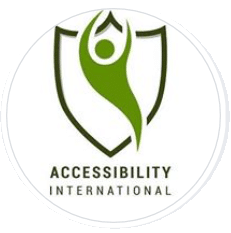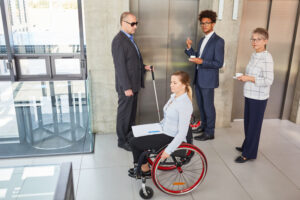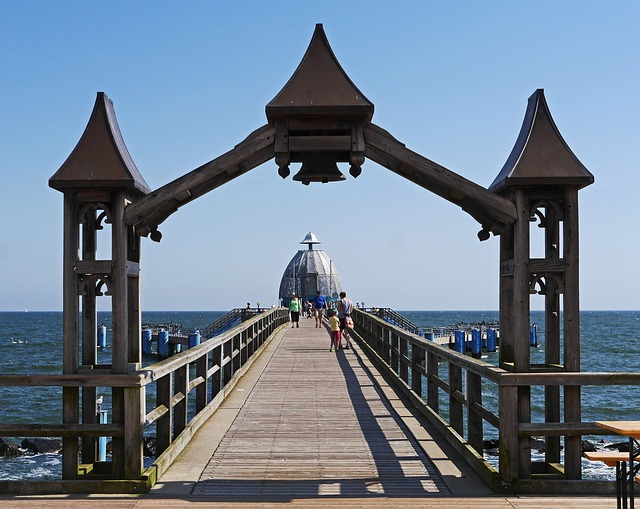This guest blog post was authored by Jeana Jorgensen, General Manager, Cloud Commercial Communities at Microsoft.
One billion people, or 1 in 5 people, experience some form of disability. Accenture research shows that organizations that hire and retain people with disabilities make 28% more revenue than their counterparts. As a company, we need to make sure we are not just creating an accessible workplace, we are also building accessible solutions for our customers. Our Cloud and AI technologies are fundamental to providing inclusive and accessible solutions that enable everyone, everywhere, to achieve more.
On May 21, Global Accessibility Awareness Day (GAAD), we shared our journey and reaffirmed our commitment as a company to support building accessible solutions for all. This week, we are continuing to recognize this important topic and share our progress and aspirations through Microsoft’s annual Ability Summit.
Also, on May 21, we announced a partnership between our Microsoft for Startups team and Dream Legacy Foundation. The goal of this partnership is to leave no one behind. Through this partnership, Microsoft for Startups and Dream Legacy Foundation will work together to help accelerate, develop and build strong foundations for underrepresented founders including: LGBTQA2S+, indigenous communities, people of color, people with disabilities, female-identified founders, newcomers and refugees.
#BuildFor2030: Celebrating partners who support accessibility
We launched our #BuildFor2030 campaign in March. The goal was to increase our focus and contribution to the United Nation’s Sustainable Development Goals. Our campaign highlights technology that enables an inclusive economy with impactful business outcomes. We launched on International Women’s Day and focused on Microsoft’s efforts to recruit and promote female founded or lead organizations in alignment with SDG #5: gender equality. Today, in alignment with SDG #8 (full and productive employment and decent work for all), I want to recognize Microsoft partners who are building innovative solutions for a more accessible world with our cloud and AI technologies.
Microsoft partners: helping customers with accessible solutions
Microsoft and our partner community have created innovative solutions directly enhancing accessibility. Our partners are also leveraging our technology to support customers serving people with disabilities. Here are just a few you can find in our commercial marketplace today.
Akari offers Akari Virtual Assistant, AVA, an accessibility-minded chatbot built on Microsoft Teams that uses AI to automate tasks, using skills and language modeling to aid organizations and the lives of users with hidden or situational disabilities, and Akari Translation Studio, which helps companies remove language barriers allowing efficient translation to 60+ languages to drive greater inclusivity.
ATOS Accessibility as a Service delivers scalable accessibility management. ATOS uses the power of Microsoft 365 to help create accessible, inclusive, and compliant workplaces by integrating new accessibility features from an Assistive Technology catalog. The solution also provides proactive management of interoperability with line of business applications.
ClearPeople’s Atlas is an inclusive, people-first digital workspace for communication, knowledge and collaboration using Microsoft Teams and Office 365.
KPMG built KPMG Community Care, a Dynamics 365 based solution for disability and home care providers that connects care workers, service delivery and financials for their customers. KPMG Community Care can help you manage enquiries from potential new customers across modern channels.
Lazarillo Tec Spa’s wayfinding platform for people with disabilities maps the indoor and outdoor space of an event venue and then, when connected it to the LazarilloApp, provides a suite of accessibility services for institutions to make their spaces and services more accessible for people with disabilities.
Moovit Mobility as a Service (MaaS) solutions help businesses and governments improve urban mobility. For instance, they deliver accessibility-friendly transit apps that empower users facing barriers to independent travel due to disability.
QuantiQ’s CareTEQ is a Microsoft Dynamics’ based solution to help nonprofits manage fundraising, with direct integrations into the most common fundraising websites such as Just Giving and Virgin Money. QuantiQ supports non-profit organizations such as Leonard Cheshire toward their mission in empowering people with disabilities.
Reverie Language Technologies language-as-a-service (LaaS) platform enables real-time language translation for digital and mobile content in 11 Indian languages, enabling their customers to reach new markets and non-English speaking consumers.
SyncWords Captioning Service offers automation technologies, cloud-based tools, and services for closed captioning.
Wortell’s Video Butler Teams Meeting Room as a Service creates a uniform way of working across all locations, integrating traditional voice calls, Skype for Business and Microsoft Teams. Video Butler hires and enhances employability of people with disabilities who work best from their home environment.
You can find a host of other accessible-first solutions and services currently showcased as part of our #BuildFor2030 campaign on the homepage of our commercial marketplaces – both Microsoft AppSource and Azure Marketplace.
Learn more about GAAD
Learn more about Microsoft Accessibility
Learn more about Microsoft’s AI for Accessibility grant program




